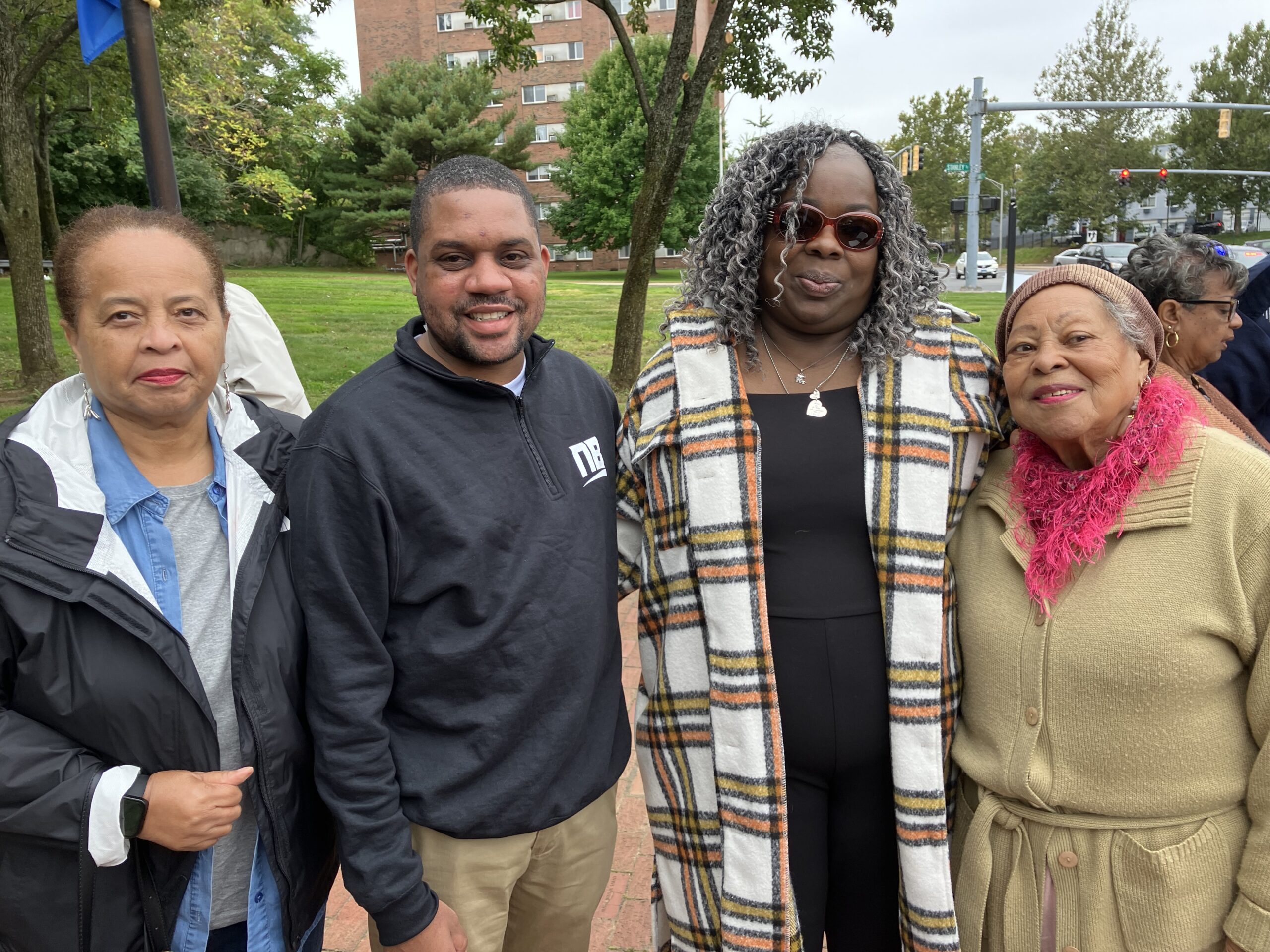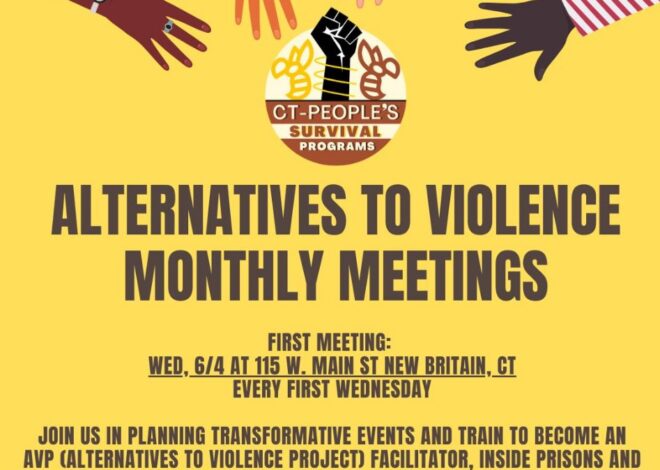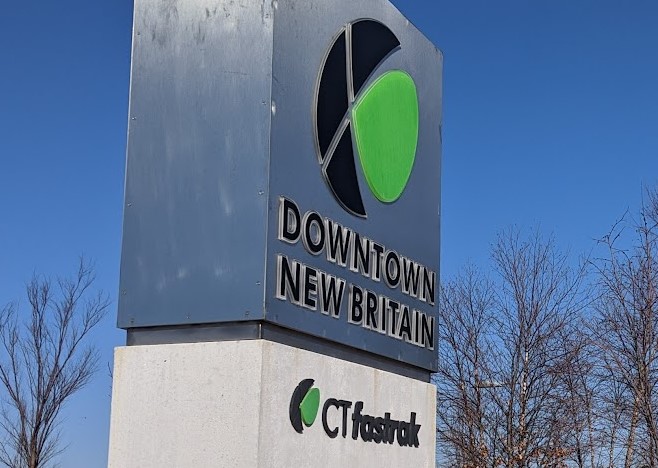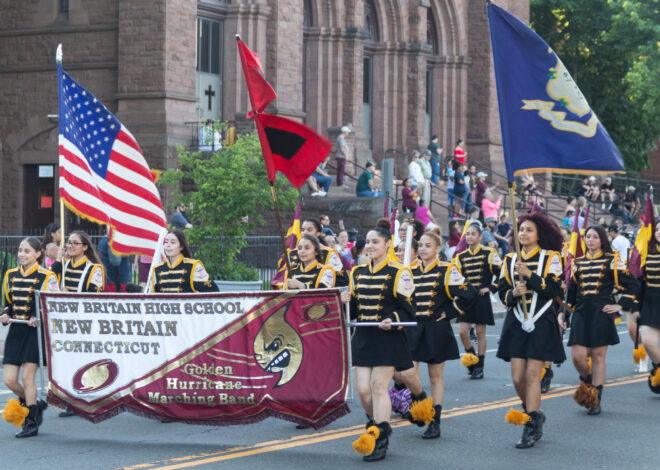Staff Reports
NEW BRITAIN – Officials and residents marked the 30th Anniversary of the Rev. Martin Luther King, Jr. Memorial Park on October 14th, rededicating the monument for the slain civil rights leader with more than 90 new commemorative bricks donated by individuals and organizations.
The Commission on Human Rights and Opportunities organized the observance attended by members of New Britain High School’s African American Club, New Britain police officers and firefighters and members of the Black Ministerial Alliance, including Pastor Gervais Barger of Peace Missionary Ministries and Dr. Jonathan Counts of Spottswood AME Zion Church. CHRO Officer Jarrell Hargraves said a recent fundraising drive resulted in refurbishing the park’s original naming brick in addition to new ones.
In 1993, the memorial park was created in cooperation with the city’s Parks and Recreation Department. Organizing and fundraising efforts by members of the Mary McLeod Bethune Club, former Ald. Joe Willis, George Springer of the American Federation of Teachers and others in the community were instrumental in establishing the park at the corner of Smalley and Stanley Streets.
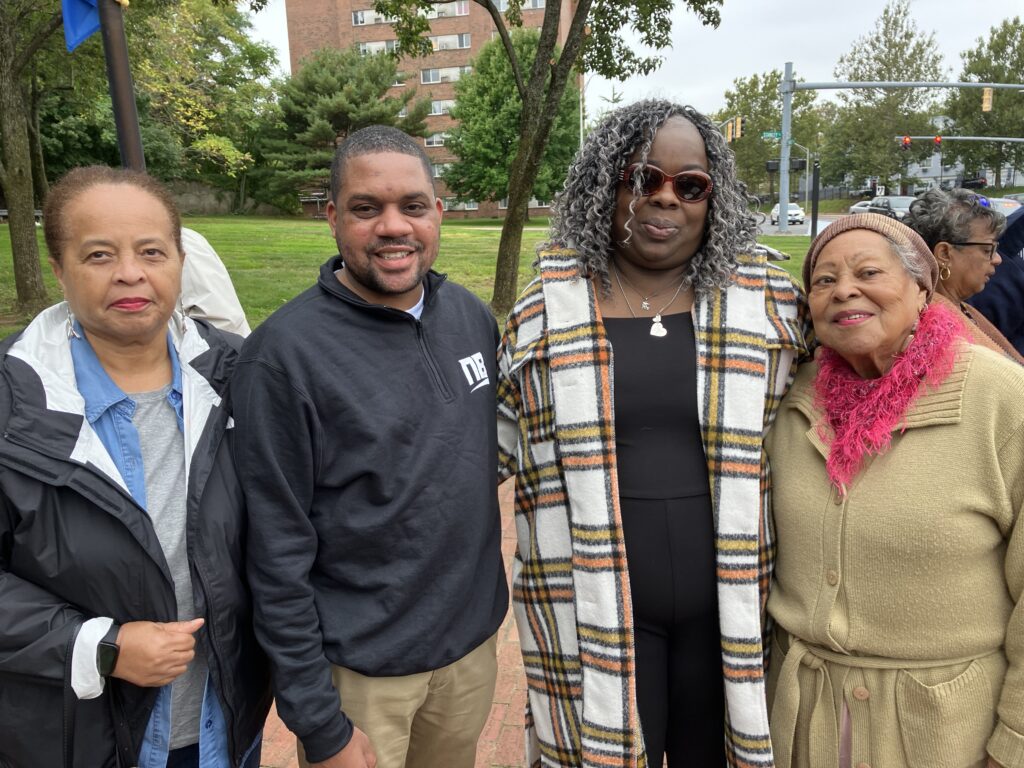
Janice Choice Edwards, one of 14 of the city’s McLeod-Bethune Club women who to led the drive for the King monument, shared how the community came together to make it a reality 30 years ago. She said that while many communities honored the memory and work of Rev. King by re-naming schools and streets, New Britain was the first to establish a monument in the small park at the site of the old Hartford Avenue — once a thriving center of African American life in the city. Police Commissioner Valerie Ingram recalled growing up in the neighborhood as a 10-year-old, retelling the history of monument’s location during the 1960s Civil Rights era.
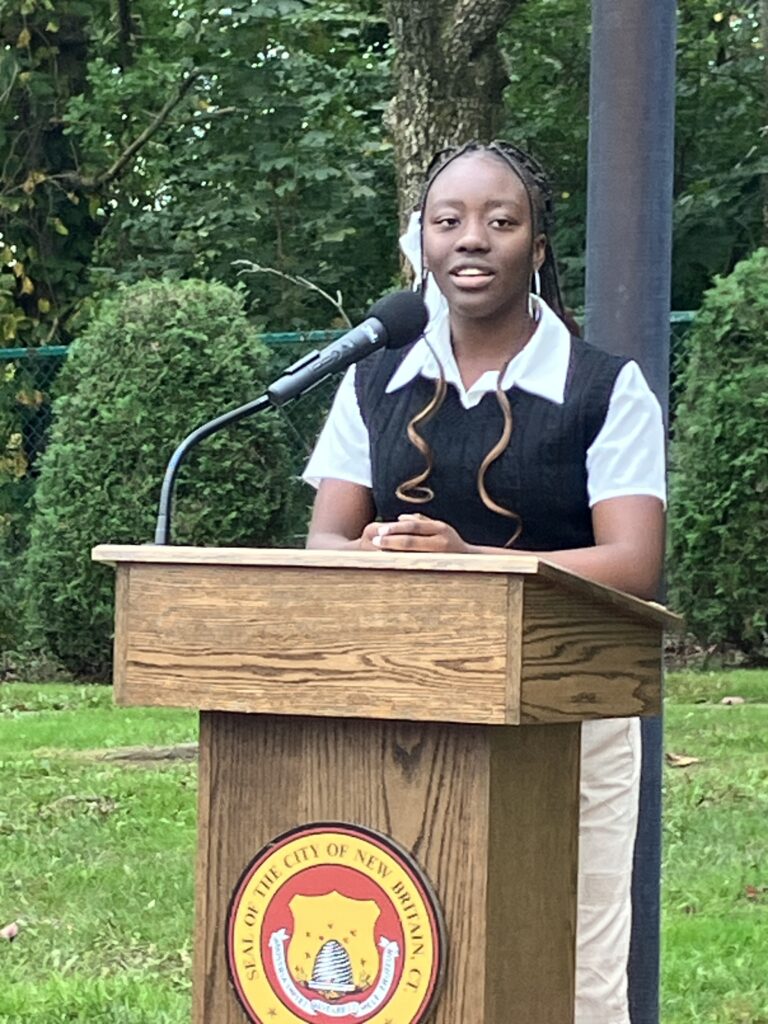
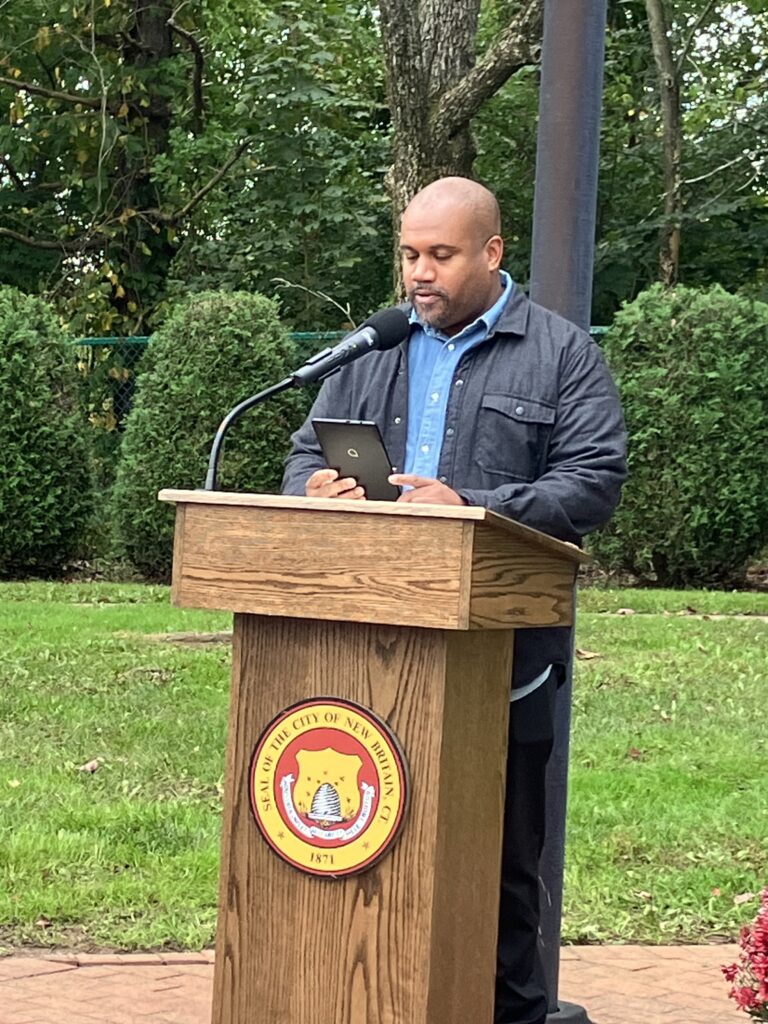
Colin Osborn of the Black Democratic Committee of New Britain recalled Dr. King’s visits to Chicago in 1966 to lead marches against housing discrimination.
“Dr. Martin Luther King Jr was swarmed by about 700 white protesters who hurled rocks, bottles and bricks at him. said Osborn. “One of those bricks hit Dr. King in the head, knocking him to one knee. He thrusted out an arm to break his fall. He remained in a kneeling position, with his head bent for a few seconds until his head cleared. This was a very important moment in history because it was one of the first times that local civil rights activism had had taken place….In The North….at such a high level.
“During this time in Chicago, Blacks residing in black neighborhoods were living in rat and roach-infested 4 room apartments and were mandated to pay $97 a month for rent, while whites who lived in their neighborhoods only paid $73 a month for rent, while living in a 5 room apartment.” Osborn cited a quote by Dr. King at that time in Chicago: “We are tired of being lynched physically in Mississippi, and we are tired of being lynched spiritually and economically in the North.”
“The Dr. Martin Luther King Jr monument being rededicated today is symbolic and reminds us of the struggles that we must continue to fight,” said Osborn. “We are still dealing with disenfranchisement and disparities in education, employment, housing and healthcare. The rededication of this monument represents a conglomerate of people, both alive and in spirit, who have expressed weariness in being mistreated, ignored, ostracized and lynched spiritually and economically. Let us not allow all that occurred during the civil rights movement to be in vain.”
Osborn thanked Hargraves and the CHRO for its efforts. “Today’s rededication is a symbol of the city’s commitment to fight disenfranchisement and disparities experienced here in New Britain.”
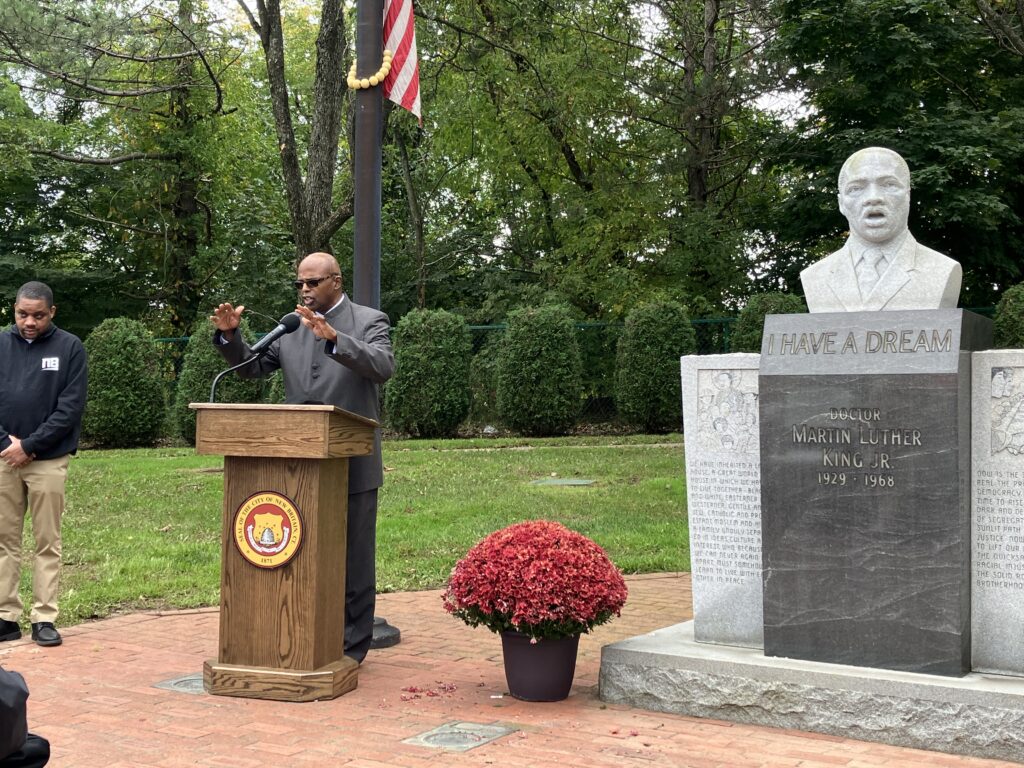
(NB Progressive)

